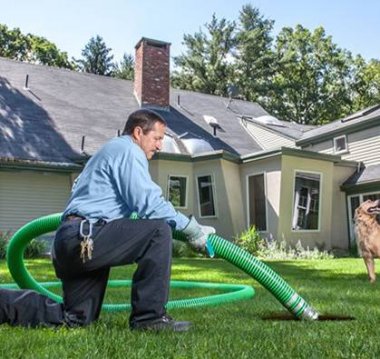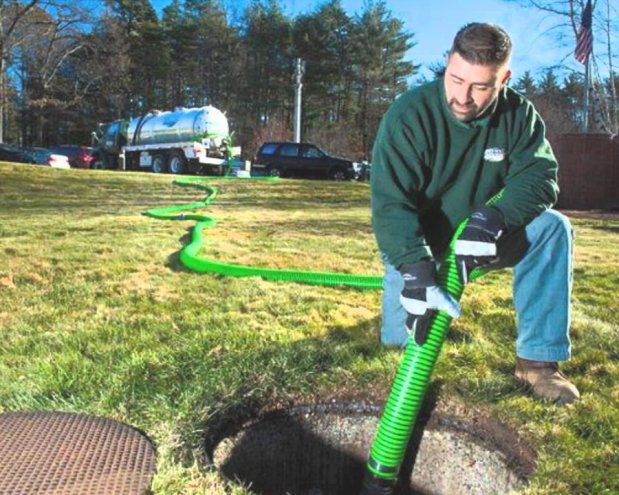
07
As a homeowner with a septic tank, it’s important to understand how your daily activities can affect the health and functionality of your system. One such activity that can have a significant impact on your septic tank is doing laundry.
When you do laundry, the water and detergents used can have a negative impact on your septic system. Here’s how:
The amount of water used during laundry can overload your septic system. Washing machines use a lot of water to clean clothes, and if you’re doing multiple loads of laundry a day, you’re adding a significant amount of water to your septic tank. This can cause your tank to fill up too quickly, leading to backups and potential problems with your drain field.
The detergents and chemicals used in the laundry can also affect your septic system. Many laundry detergents contain phosphates, which can promote the growth of algae in nearby bodies of water. If your septic system is located near a body of water, this can be especially problematic.
In addition, many laundry detergents and fabric softeners contain chemicals that can harm the bacteria in your septic tank that are responsible for breaking down waste. If these bacteria are killed off or inhibited, your tank won’t function as well, leading to potential issues with backups and clogs.
Another issue with laundry is the potential for non-biodegradable materials to end up in your septic tank. For example, if you’re washing clothes that contain synthetic fibers like polyester or nylon, these fibers can be shed during the washing process and end up in your septic tank. Over time, these non-biodegradable materials can accumulate and cause blockages or other problems.
One way to reduce the impact of laundry on your septic system is to use high-efficiency washing machines. These machines use less water than traditional washing machines, which can help prevent overloading your septic tank. In addition, they often require less detergent, which can also help reduce the impact of chemicals on your system.
Another important step is to use septic-safe detergents and chemicals. These products are designed to be biodegradable and won’t harm the bacteria in your septic tank. Look for products that are specifically labeled as safe for septic systems.
To prevent non-biodegradable materials from ending up in your septic tank, avoid washing items made of synthetic fibers like polyester or nylon. Instead, opt for natural fibers like cotton, linen, or wool.
Finally, it’s important to schedule regular septic tank pumping and maintenance with a professional septic company. This will ensure that your tank is functioning properly and that any potential issues can be addressed before they become major problems. A septic company can also provide recommendations for how to care for your septic system based on your specific needs.
While laundry may seem like a simple and harmless activity, it can actually have a significant impact on your septic system. By using high-efficiency washing machines, septic-safe detergents and chemicals, and avoiding non-biodegradable materials, you can help protect your septic system from damage. And by scheduling regular septic tank pumping and maintenance with Charlotte Septic Pros, you can ensure that your system stays in good condition for years to come.

12
A single slow drain in your home can feel like a minor inconvenience. Maybe the sink takes a little longer…
Read more
05
Are Slow Drains a Septic Issue or Just a Clog? Slow drains are one of those household problems that start…
Read more
02
What Septic Service Techs See That Homeowners Miss Most homeowners only think about their septic system when something goes wrong.…
Read more
21
Simple Habits That Protect Your Septic System A well-functioning septic system does its job quietly, but the moment something goes…
Read more
14
Pump Now or Pay Later: The Real Cost of Skipping Maintenance A properly functioning septic system is easy to forget…
Read more
11
Why Your Septic System Always Acts Up at the Worst Time Homeowners often feel that septic problems strike at the…
Read more
04
Early Warning Signs Your Septic Tank Needs Pumping For homeowners who rely on a septic system, routine maintenance is not…
Read more
29
Why Does My Septic System Smell Fine One Day and Terrible the Next? If you own a home with a…
Read more
19
Is Your Septic System Overdue? Simple Home Checks You Can Do Today For many homeowners, the septic system is a…
Read more
13
5 Signs Your Septic Tank Is Overdue for Pumping Your septic system works quietly behind the scenes, managing wastewater from…
Read more